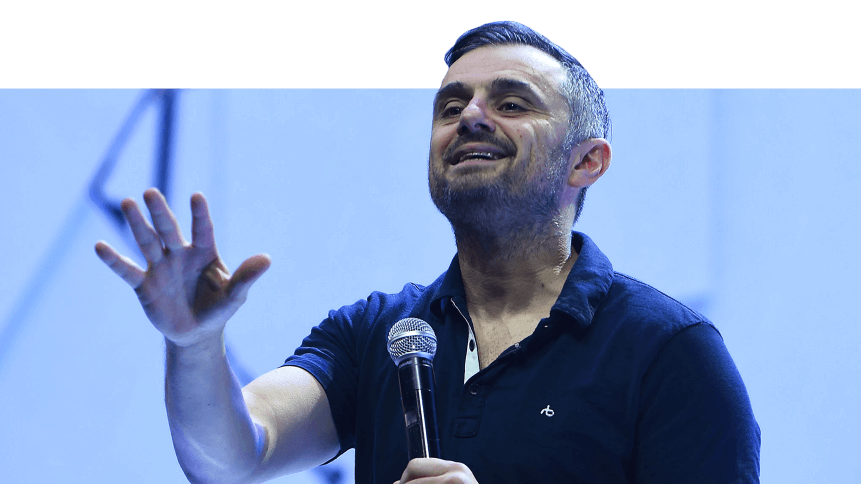Gary Vaynerchuk: Why businesses can’t keep up with new tech

Upon entering administration, Thomas Cook joined a long list of household names that includes former giants such as Kodak, Xerox, and Blockbuster Video. All of which will be remembered for failing to innovate and adapt to a digital age and ignoring the signs that appeared obvious to everyone else.
We have been here several times before, and it can be difficult to understand why brands are failing to tackle the digital disruption of its traditional business models. What are the real reasons as to why incumbents are falling behind new entrants? Is it a fear of emerging technologies and trends? Or could it be something else?
It’s easy to assume that businesses have taken their eye off the ball and become lazy after years of living off former glories. But, what if it’s not because they are all ignorant about new technology or have become set in their old ways. Could it be that there are other reasons at play?
I recently interviewed Gary Vaynerchuk at the WCIT event in Yerevan, Armenia. I asked him how he thinks businesses can catch up and reverse the downward trend when they find themselves behind the digital curve? Vaynerchuk replied without hesitation, “If they’re a publicly-traded company, they don’t.
“The reason they can’t catch up is they can’t take the financial commitment to invest in the infrastructure. It’s tough to be a company that’s being measured every 90 days financially, to go invest in AI or voice.”
Vaynerchuk added, “When you make that upfront capital investment, and you don’t get the immediate return, you’re held to scrutiny. And, and that’s why big companies lose to little companies all the time.
History prepares us
What was considered a winning strategy in our analog past is now proving to be the downfall of brands in a digital world. The current media narrative suggests that established firms are dropping the ball to new entrants. But if you look closer at the problem, there is an increasing argument that it’s accountability, not technology that could save businesses.
When it comes to technological change, Vaynerchuk believes many of the answers we are searching for can be found by looking at our history. “Factories had to adjust to machines, farmers had to adapt to using tractors, and retail stores had to adjust to registers that were computers versus cash.”
Nothing has changed. But has our obsession with new shiny technology blinded us from the lessons from our history? In doing so, Vaynerchuk believes that we are ignoring valuable lessons and then blaming everyone but ourselves.
Vaynerchuk also offered a wake-up call to both managers and employees on the dangers of not preparing for new technology. “Autonomous Trucks are coming in 20 years. Imagine you’re a 28-year-old truck driver, and you know that autonomous trucks will arrive in 20 years when you are 48. Is it the fault of the autonomous truck? Or is it your fault for not creating a new skill and getting a new job?
“We need to get into accountability. Not into demonizing to technology.”
The conversation woke me up to the fact that preparing for new technologies doesn’t just lie with managers and employers. Workers themselves also need to take responsibility for their future too. While situations will be complex, we should seek a new narrative that doesn’t always infer that the major workforces will be single, unassuming victims.
Continuous learning
We are all unique individuals who are intelligent enough to see the stone rolling down the mountain. We need to stop blaming tech or digital disruption for the downfall of a career or entire business model and encourage greater accountability. But we also need to remember that it’s not even about technology.
A symbiotic relationship between employer and employee is the secret sauce that unlocks future successes for both parties. Every employee that adopts a continuously learning mindset and feels that their contributions are valued will naturally increase the performance and productivity of a business.
Replacing blame with a culture of accountability, collaboration, and collective action would be a huge step forward in the name of progress. In many ways, this is much more important than any new software solution or the adoption of emerging technologies. Sometimes, it’s about people, rather than tech.
We have become obsessed with the next big thing and gazing into a crystal ball, trying to guess the most significant tech trends for 2020. Many business leaders are also trying to understand how the so-called fourth industrial revolution and Web 3.0 will impact their future. The reality is we have been here many times before and need to remember to learn from the past.
It’s often said that those who do not learn from our history will be condemned to repeat it. Technological change will continue to advance at breakneck speed, and there is no going back. Just as Gary Vaynerchuk said, learning from history and accepting that accountability, rather than demonizing technology, is your only option.
Watch the full interview with Gary Vaynerchuk below.










